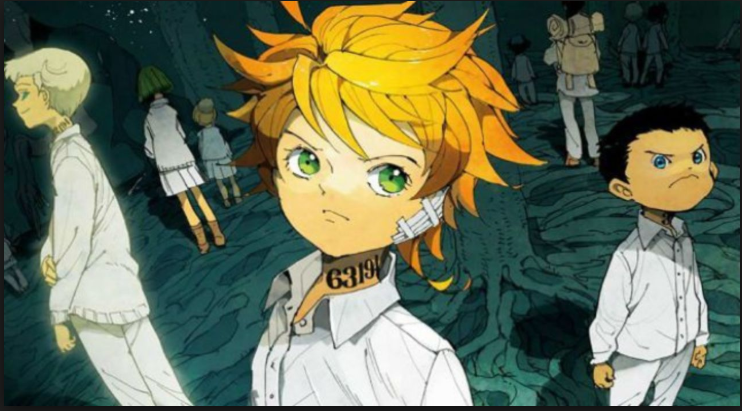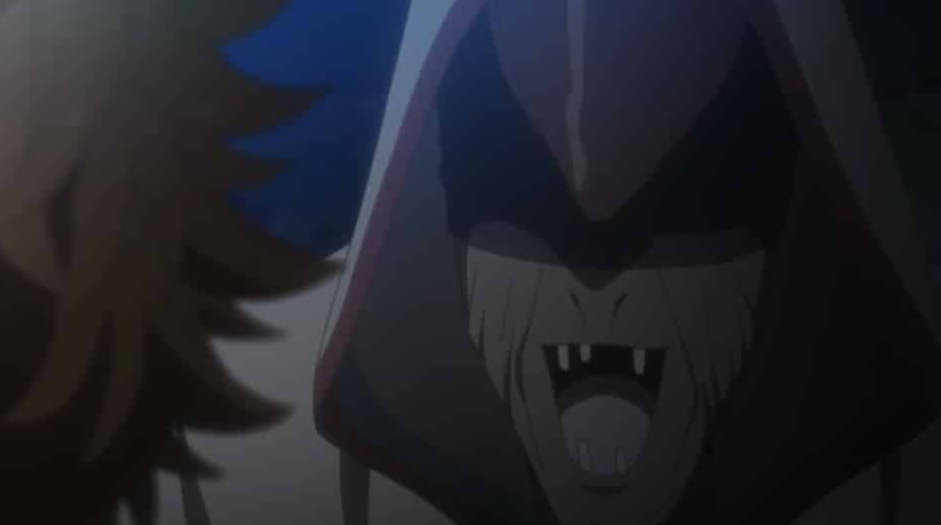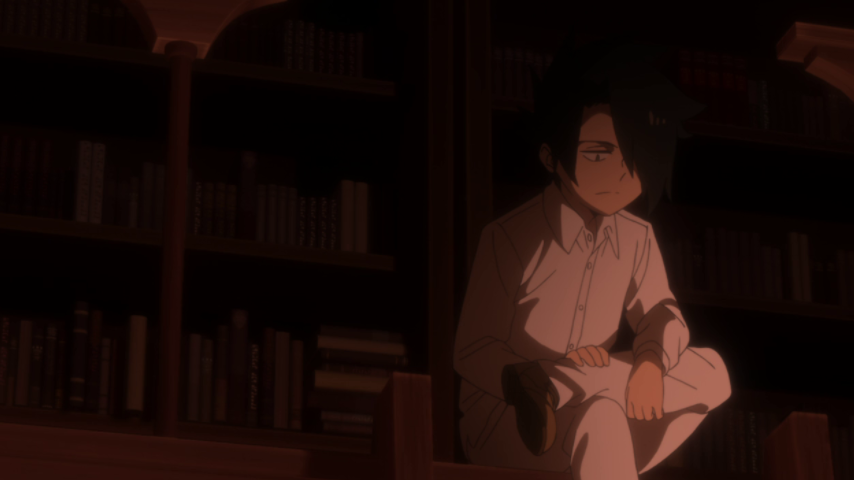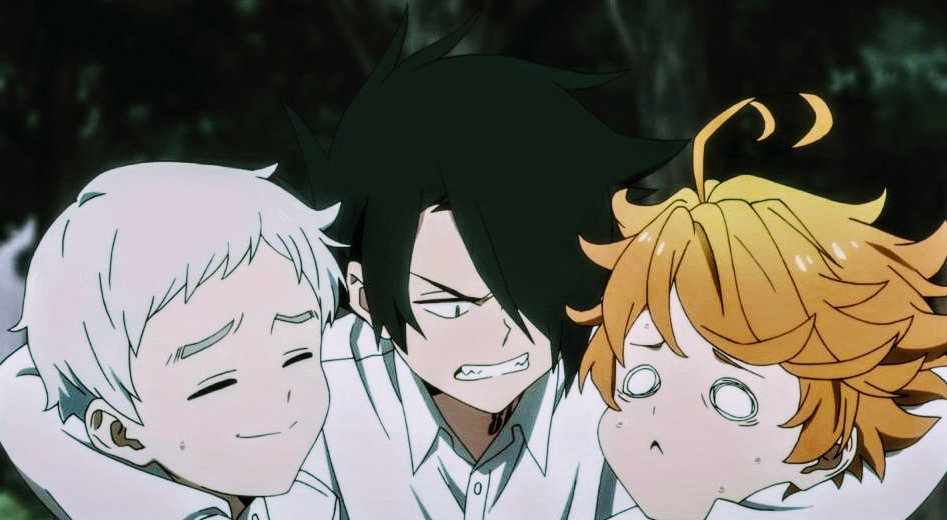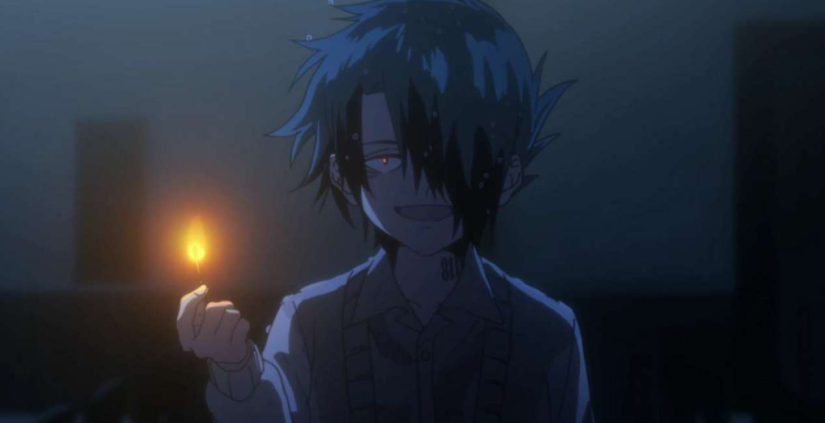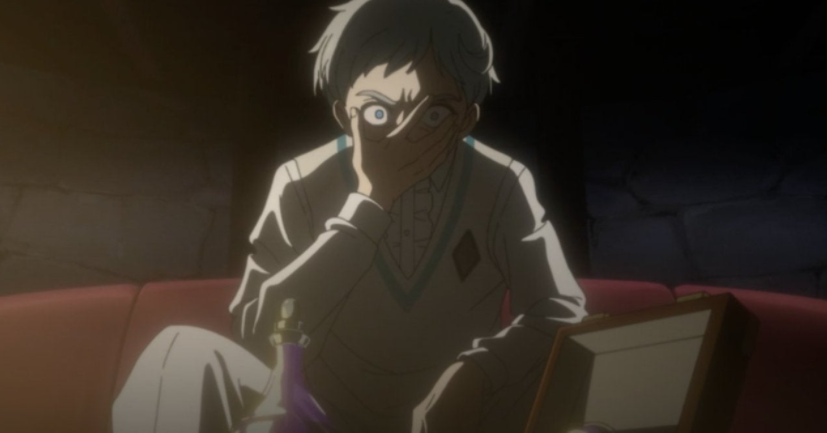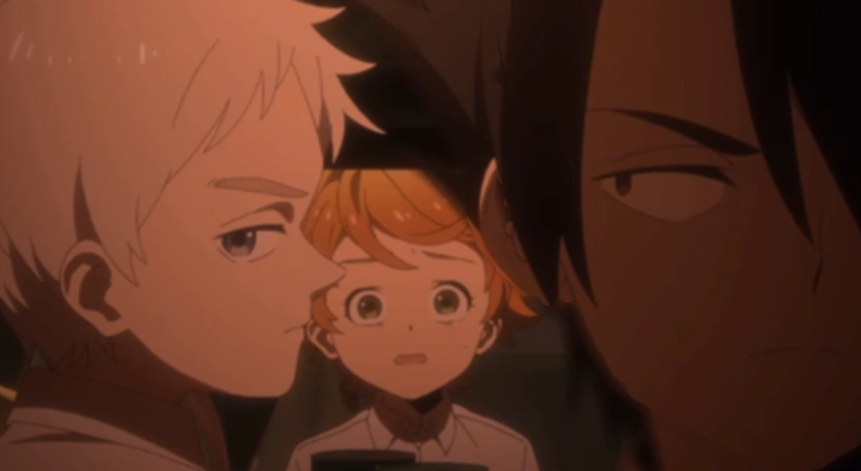The Promised Neverland and the Tragedy of Ray
When Phil gets more character development than the main characters….
I have a baby now so no apologies for not uploading for a couple months. Now that I’m finally settling into a routine with him, I’ve been able to watch anime again. Despite my issues with how The Promised Neverland ended, I enjoyed the Goldy Pond arc and was looking forward to watching it this season. Unfortunately, the arc got scrapped in its entirety for an anime original storyline, one that was headed by the author of the manga, Kaiu Shirai. My initial disappointment gave way for pleasant surprise as the anime began to neaten up some of the stranger plot devices of the manga’s latter arcs.
Things take a steep nosedive in episode nine, where an elderly demon presents the children with a missing piece of a William Minerva pen. He suddenly tells the group that fifteen years ago, he met a dying human who for some reason gave him this random circle of plastic. It would have been completely meaningless to the demon, and yet he kept it in his robe this whole time, just to bring it out at this convenient juncture. Despite the pen being fifteen years old, it contains current information about Grace Field House and ingredients for a cure of a fatal illness that is afflicting Norman and his friends from Lambda.
The scene was so crazy, and the so-called conflict between Emma, Norman and his Lambda troupe was resolved so quickly, that I could only laugh in disbelief once it was all over. The anime is currently airing at the same time as Attack on Titan, a manga with a slightly similar concept, and so it is easy to compare Norman and Eren, and it’s all too easy to see which story is superior.
Once I realised that the anime was an original story, I had hoped they would do something more with Ray. He was my favourite character from the Grace Field arc, but he slowly dissipated into Emma’s shadow for the rest of the story. To my disappointment, the anime team has equally struggled with him. Witnessing a dissected Ray for a second time isn’t fun, and it’s brought back all sorts of issues I had with his character when I read the manga for the first time. I’ve wanted to write about this for a while, but was so annoyed with the manga’s ending that I had no desire to spend time writing about it. Well I have time now.
Ray starts off as the emo prodigy of the bunch. He’s a typical character: Sasuke, Shoto, Uryu, Urie, and so on. From his dark hair and lazy eyes, slouched posture and constant frown, he’s the physical and emotional contrast of both Emma and Norman. As the Grace Field Arc progresses, Ray’s character gets more depth as we find out that he’s the traitor. Then he becomes a double-spy, choosing to work with Norman and Emma to divert Isabella’s attention. In reality, Ray, Isabella’s own child, has planned since infancy to escape Grace Field with Emma and Norman, carefully lining their paths with clues as to the true nature of their home. Burdened with foetal memory, Ray can recollect his first sighting of the demons and is forever tainted by the trauma of their existence. His tireless act with Isabella produces a treasure haul of seemingly useless items, but once assembled, becomes the tools needed to break out of the farm.
Ray isn’t at all selfless. Despite knowing exactly what awaited each of his siblings, he feigned innocence for twelve years, watching his fellow children walk to their doom, his expression never revealing what awaited them outside the Grace Field gates. In fact, Ray often needed his siblings to die in order for him to accumulate his materials and intel on the outside.
This harsh, clinical ability to weigh up the costs and remove the emotional implications of these decisions is what makes Ray so necessary. Emma is idealistic and naïve, stubbornly hoping to save everyone and go on a whimsical journey to an outside world with known dangers. As long as she has the conviction to do something, Emma will do it and work out the issues as they come. Norman, totally smitten beyond sense with her, chooses Emma’s optimism even if he doesn’t agree with it. Ray is the realist. He asserts his disagreement, he makes alternate plans, he brings the other two back down to earth when they go off the rails. It was Ray who said they would need to leave the younger children behind, and after suffering a setback, Emma finally sees the sense of it, and agrees. Without Ray, the plan would have failed.
One of the biggest twists to Ray’s character is his secret suicide plan. Over the course of his life, he has accumulated gasoline and matches, enough to destroy the house and himself. Norman discovers this secret hidden under his bed and plots with Emma to save him. Considering his young age, it’s morbid and horrifying that Ray has resolved to do such a thing, but it also speaks to his depression and the impact his personal trauma has had on his life. And to prove this, he very boldly pours the gas on himself during their great escape, and almost succeeds in his attempt when Emma quickly extinguishes the match and convinces Ray to live on for Norman’s sake.
Ray’s survival is a major bug bear of mine. The scene of his near-suicide is very impactful, but I was interested to see how he would choose to live his life off the farm, away from his mother and all the confines that had led him to such a drastic course of action in the first place. I was expecting a Ray that would discover optimism and hope, but still provide much needed advice and reason to Emma’s fanciful ideas. As the manga progresses, all the characters quickly agree to Emma’s every idea. Even though all the children are elated to see Norman and hear of his extermination plan, as soon as Emma tells them she disagrees, they decide that Emma is correct—even the children from Goldy Pond, who each have very understandable vendettas against the demons. Somehow, Ray falls into line with everyone else.
When Norman returns, the trio has a new dynamic. Norman is cynical and jaded, a cold, calculating leader. Emma is Emma, his exact opposite. Ray could have been the reasonable middle. He has various things to disagree with on both sides: Norman’s plan is convoluted, puts himself at too much risk, and falls apart completely with Mujika’s existence. Emma’s plan is equally risky and relies on too much faith in demon lore. There is no need for her to care so much about the demons: why not just leave, and allow them to naturally degenerate? But instead, Ray decides to go to the ends of the earth with Emma. He barely speaks to Norman one-to-one, which would have definitely happened during the Grace Field arc.
For the rest of the journey to the Seven Walls, Ray tags along as Emma’s sidekick, goes through a massive ordeal with her, and then right at the crucial moment is magically sent back to the hideout because he doesn’t have the right heart, according to Noname. This copout allows Emma to make a difficult sacrifice without a challenge from Ray. Once again, I wonder what the Ray of Grace Field would have done, had he been allowed to meet Noname with Emma and stop her? I wonder what Grace Field Ray would have done for the entire story post Goldy Pond? Most of the time it’s easy to forget he’s there, and his presence in every panel is mainly to provide a vacant stare or disproving look. He rarely asserts his legendary intellect.
This all leads me to wonder if Ray was ever supposed to survive after Grace Field originally. I don’t envy weekly mangaka by any means. They spend months, maybe years, drafting up the first arc of a story to present to their chosen magazine, and upon acceptance are expected to finish the story in weekly increments with the same level of artistic skill. The Grace Field arc is such a tightly plotted, intricate, and self-contained story that I can only speculate the time and effort it took to write and draw it, without leaving much room for the rest of the story to be properly crafted. It would make sense, then, that at some point the creative decision was made to keep him in the story because he was popular with fans, or Shirai was reluctant to let him go, or an imposing editor decided it would be best for him to stay. Whatever reason, the Ray post-Grace Field is a sullen skeleton, and its sad to see such an interesting character lose their flair.
The Neverland anime has been equally saddening. The story had a second chance to improve upon the issues of the manga, but not only does it not make sense, Ray has slipped away into Emma’s shadow for a second time.
The anime ended without Ray ever redeeming himself. He has a slither of a moment during the last episode when he says he’s glad to be alive, and implores Isabella to live in order to atone for her sins. It gave a small window into the kind of valuable contributions Ray could have made to the story had he been properly written into it. I am sad to witness the second death of a series that once I loved, made friends over, and wrote about so passionately once upon a time. I don’t intend to return to Neverland again. There are many other stories out there. I’m sure one day, I will get enjoy whatever story Shirai wants to tell in the future. I just hope he gets to tell it as he originally intends.
